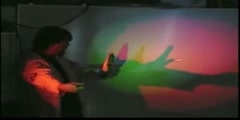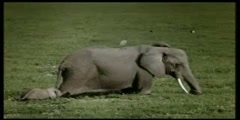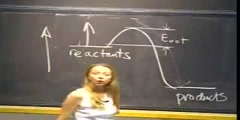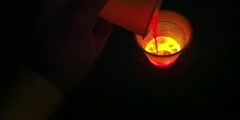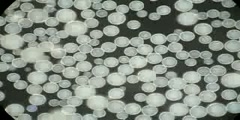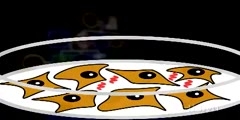Lec 4 - Aesthetic Science of Color
"Lec 4 - Aesthetic Science of Color" (October 16, 2009) Stephen Palmer, UC Berkeley Psychology, discusses his research on how humans think about, associate and react to color to demonstrate that it is possible to study the science of aesthetics. Stanford University: http://www.stanford.edu/ Stanford Engineering Everywhere: http://see.stanford.edu/ Stanford Center for Professional Development: http://scpd.stanford.edu/ Stanford University Channel on YouTube: http://www.youtube.com/stanford
Video is embedded from external source so embedding is not available.
Video is embedded from external source so download is not available.
Channels: Computer Science
Tags: computer science technology humanities internet creation application online industry color psychology aesthetically pleasing individual color combination preference calorimetric emotional musical associations HCI harmony internal coherence
Uploaded by: stanfordcompsem ( Send Message ) on 04-09-2012.
Duration: 76m 52s
Here is the next lecture for this course
Lec 16 - Computer Science 10 - Lecture 17 ...
49:17 | 4291 viewsLec 15 - TEDxCaltech - S. George Djorgovs ...
10:12 | 8026 viewsPhysics with Mr. Noon: Light and Color
09:08 | 12096 viewsHow Color is Perceived by the Brain
00:00 | 5125 viewsChemical Science-Atomic Theory of Matter ...
41:59 | 31663 viewsExperiment on liquid light color mixing
01:19 | 5199 viewsComputer Science, Bioinformatics, Science
06:21 | 9258 viewsColor changing of magnetochromatic micros ...
00:12 | 6689 viewslec 14-Computer Science 164 -
48:06 | 5337 viewslec 1-Computer Science 164 -
51:55 | 4548 viewsThe science of transgenic technology part ...
06:07 | 9978 viewsColor Codes in Resisters
09:56 | 4648 viewslec 27-Computer Science 164
46:05 | 4195 viewslec 28-Computer Science 164 -
45:58 | 4206 viewslec 29-Computer Science 164 -
45:29 | 4220 viewsNo content is added to this lecture.
This video is a part of a lecture series from of stanford
Lecture list for this course
Lec 2 - Backtracking Events as Indicators of Software Usability Problems
Lec 3 - Programming by Sketching
Lec 5 - Segmenting and Connecting: From Event Perception to Comics
Lec 6 - Why is the Google Book Search Settlement So Controversial?
Lec 7 - Multi-Sensor HCI for Smart Environments
Lec 8 - Enabling Practical Ubiquity
Lec 9 - How Dynamic Content Affects the Way People Find Online
Lec 10 - Designing a Unified Experience
Lec 11 - How Prototyping Practices Affect Design Results
Lec 13 - The Anti-Ergonomy of Instruments of Interaction
Lec 14 - Speaking Versus Typing
Lec 15 - How Multiplayer Games Will Change the Future of Work
Lec 16 - Driving User Behavior with Game Dynamics
Lec 17 - Interactive Art and Social Meaning
Lec 19 - Anthropomorphic Interfaces for the Underserved
Lec 21 - Designing Stuff: Lame Gods in the Service of Prosthetic Gods
Lec 22 - Designing Stuff: Lame Gods in the Service of Prosthetic Gods
Lec 23 - Lifelong Kindergarten: Design, Play, Share, Learn
Lec 24 - How We Think with Bodies and Things
Lec 25 - Interdisciplinary Design for Services, Systems, and Beyond



